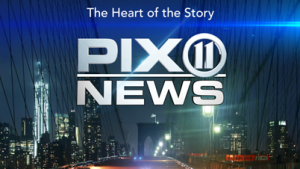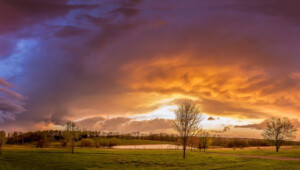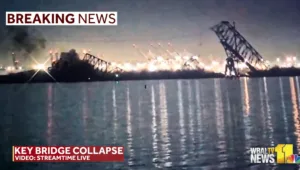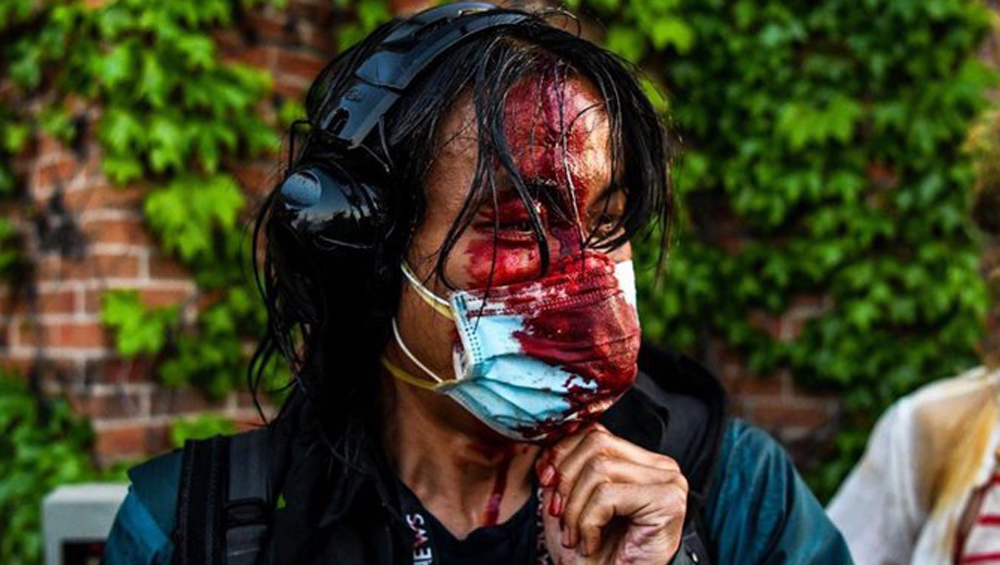
As protests spread across the U.S., journalists are being attacked by police forces and even sustaining serious injuries. Above, NBC News journalist Ed Ou after police fired teargas and rubber bullets in Minneapolis on 30 May (Photo: Chandan Khanna/AFP)
WAVE Reporter On Being Shot With Pepper Ball
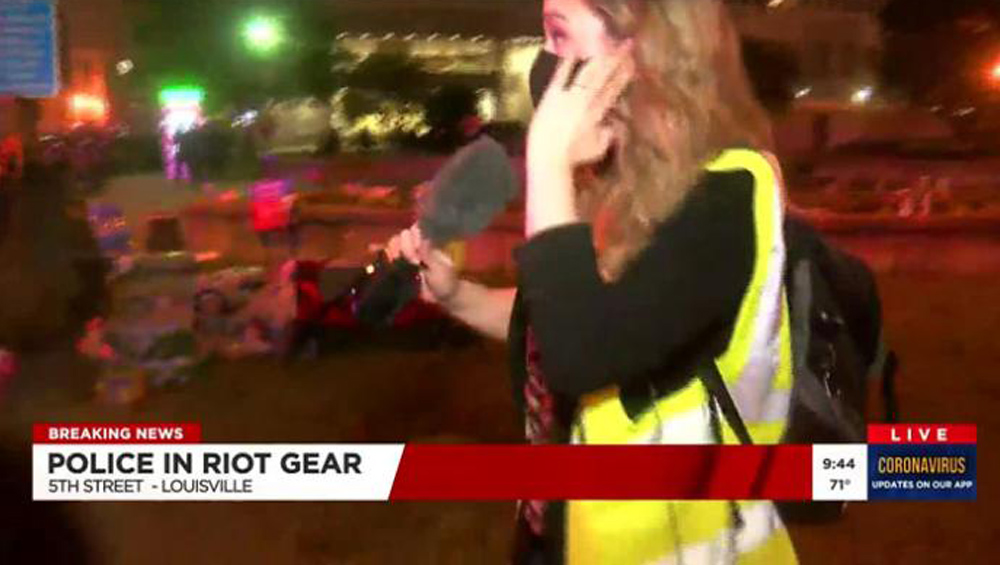
Kaitlin Rust: “As a journalist, you never want to be the story. It makes my stomach turn to see so many other journalists experiencing much worse and much greater physical harm for simply doing their jobs.”
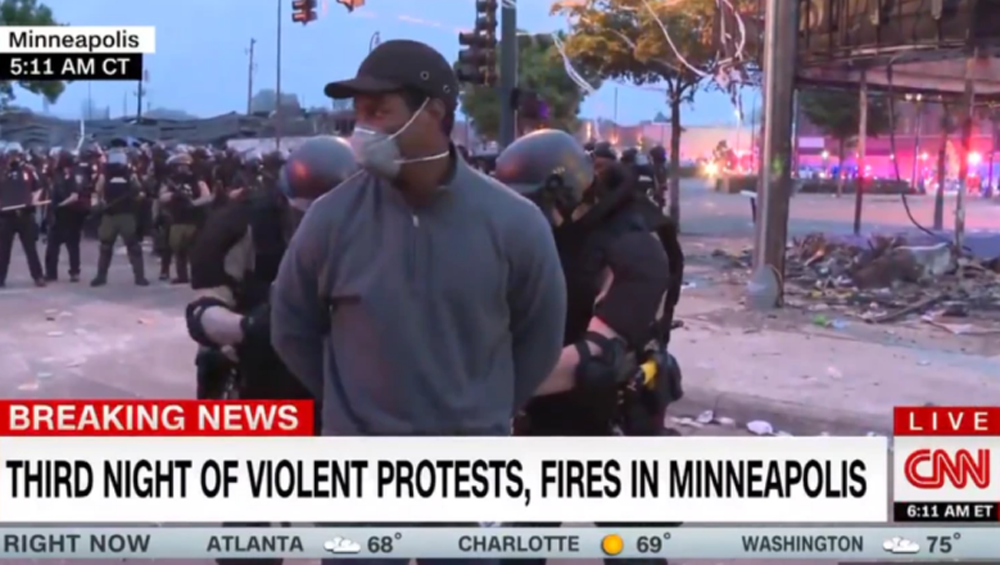
Reporters are often faced with tough situations. For black journalists, covering the George Floyd protests and other issues of racial injustice bears additional layers of complexity, one that involves managing encounters with law enforcement while on the job, and processing the emotional toll it can take to cover these events in the first place.
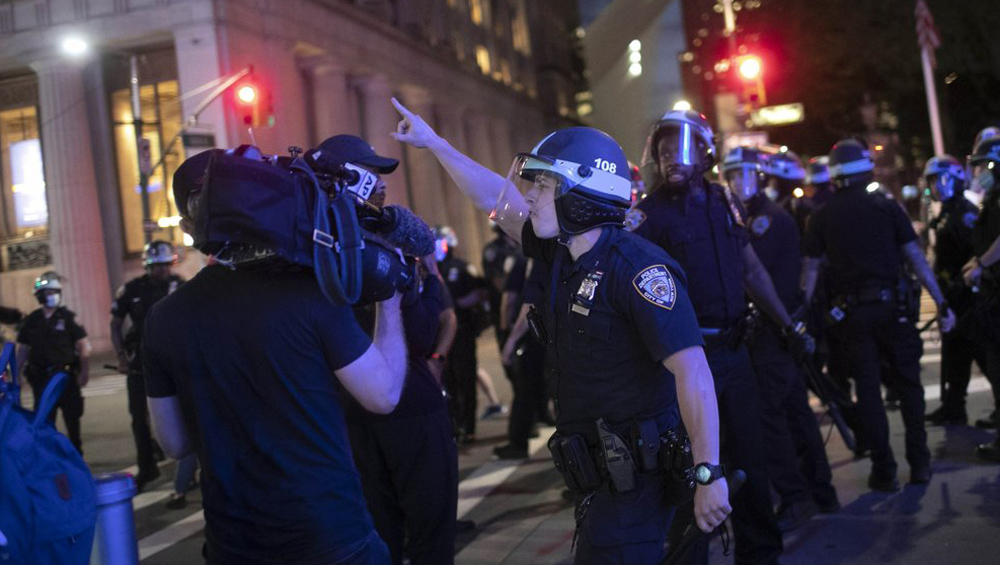
A freelance journalist, backed by the American Civil Liberties Union, filed a federal lawsuit Wednesday against the city of Minneapolis, and dozens of news organizations urged Minnesota authorities to let journalists work unimpeded. One organization has logged more than 230 incidents targeting journalists since George Floyd’s death. The Associated Press captured film of New York police shoving and swearing at two of its journalists while documenting arrests Tuesday night after a curfew went into effect. Journalists covering the story are exempt from the curfew.

The ACLU filed a class action lawsuit on Wednesday against law enforcement officials for city of Minneapolis and for state of Minnesota over law enforcement actions against journalists who have been covering protests to the death of George Floyd.
Floyd Dying Or Rioters: The Power Of Images

If the snapshot of this time is George Floyd on the ground, Derek Chauvin’s knee hard on his neck, society moves in one direction. But other images entice with a competing narrative: looters loading stolen goods into waiting cars; rogue protesters setting fires; graffiti on national monuments in Washington. For too many nights now, that narrative has gained strength — and moves the country closer to an outcome where force can be seen as both a short-term tactic and a long-term solution.

For black journalists, the civil unrest in cities across America isn’t just a big story. It’s personal and is forcing them to grapple with racial profiling and emotional trauma.
The mistake was always to think that it can’t happen here, because it can, it has and — unless we remain aware and vocal — it most certainly will again.
From a television crew assaulted by protesters to a photographer struck in the eye, journalists have found themselves targeted on the streets of America.
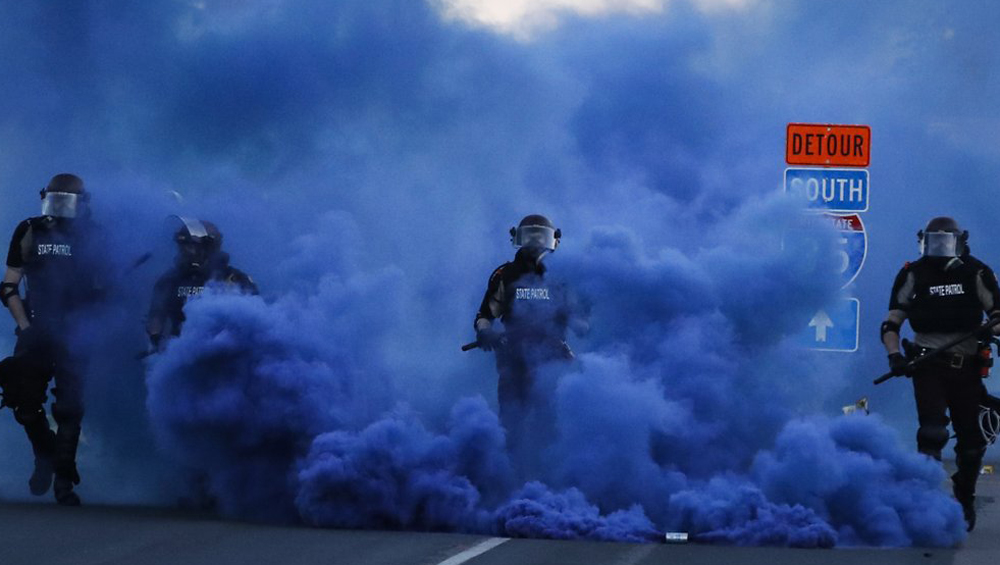
MSNBC host Ali Velshi, who said he was hit in the leg by a rubber bullet Saturday night in Minneapolis, is just one of many journalists across the country who sustained injuries from police or protesters while covering the George Floyd protests over the weekend.









